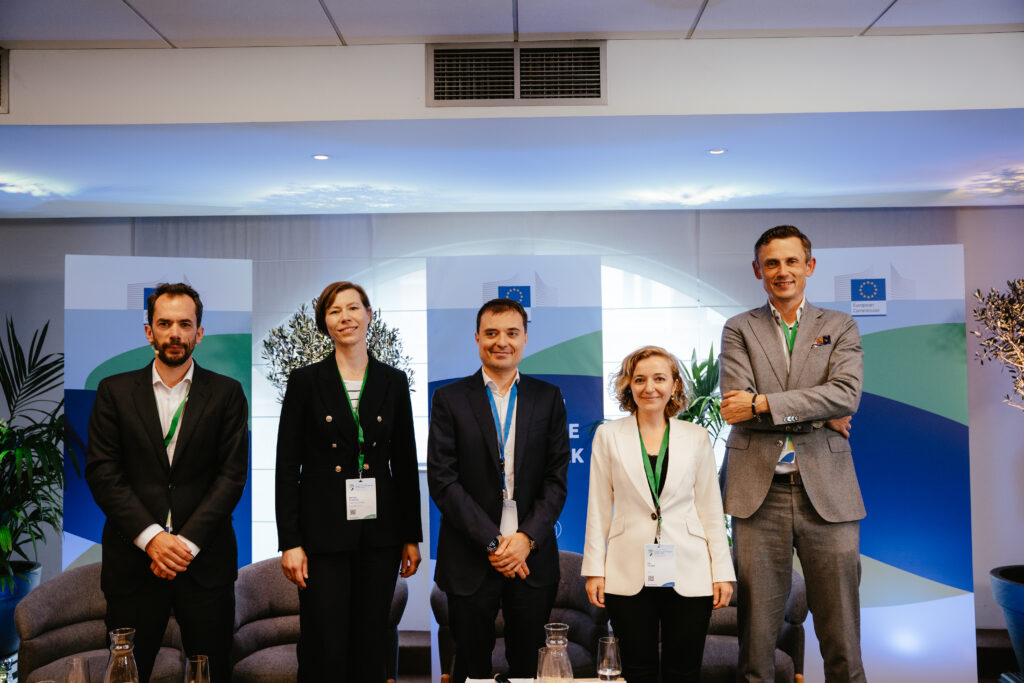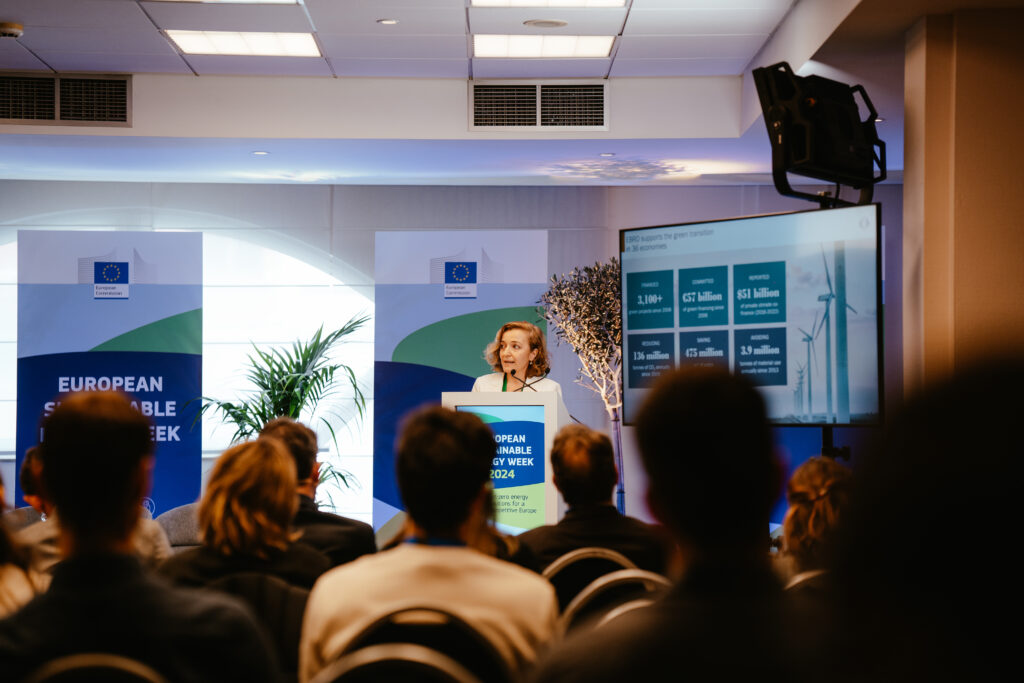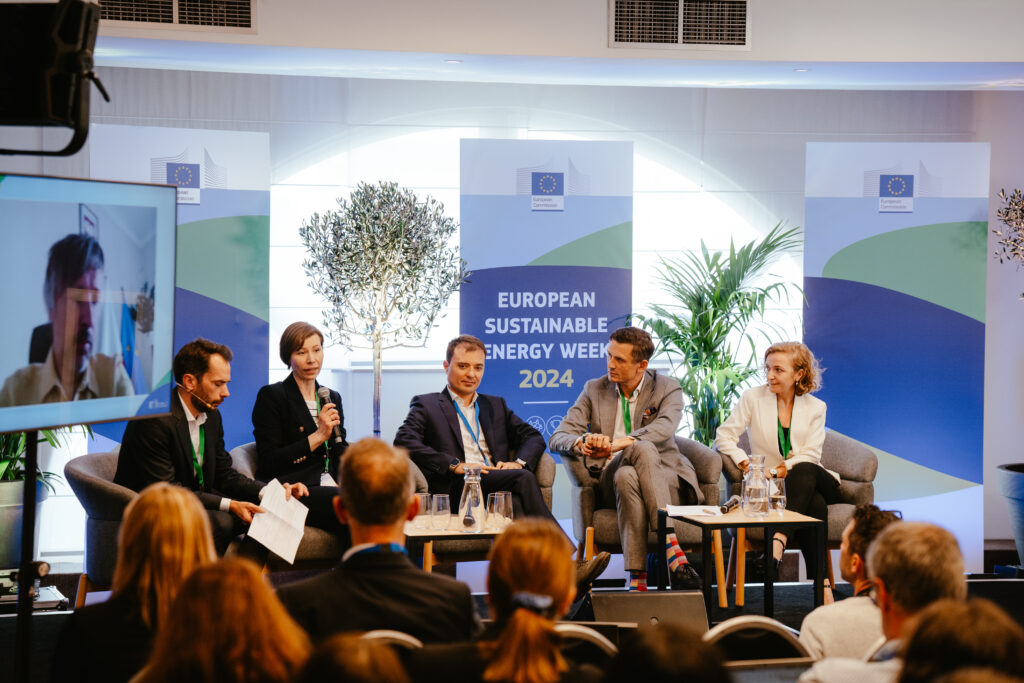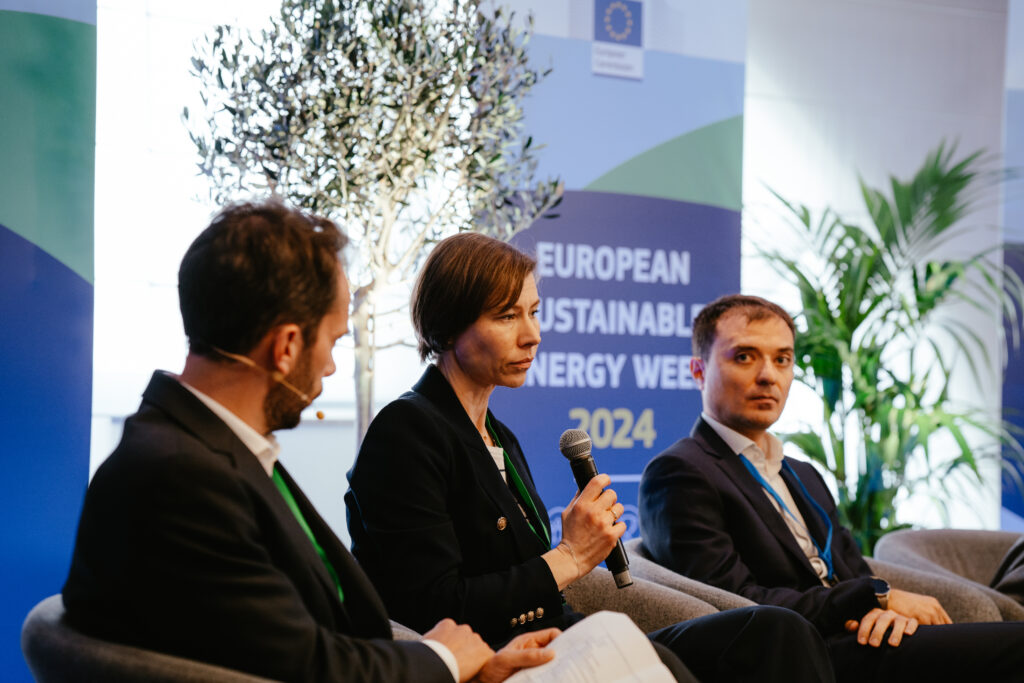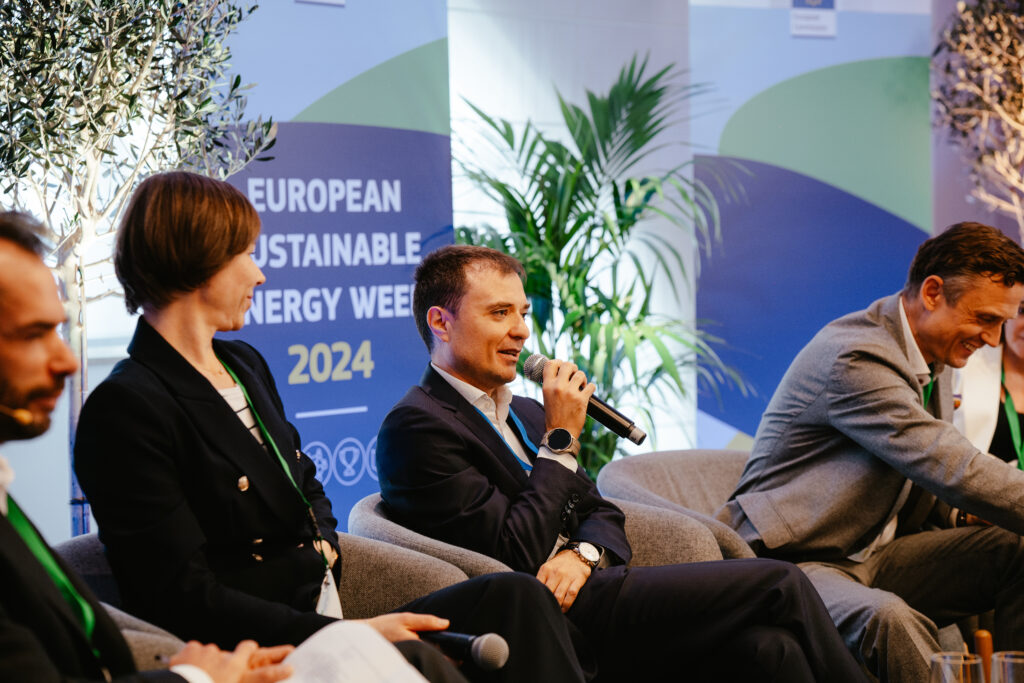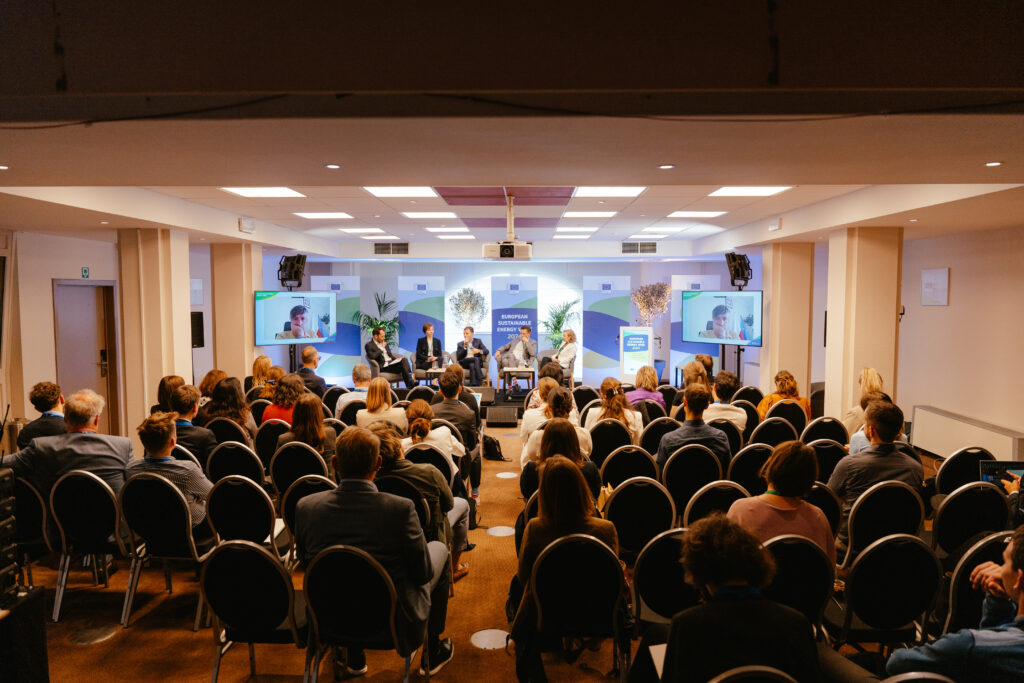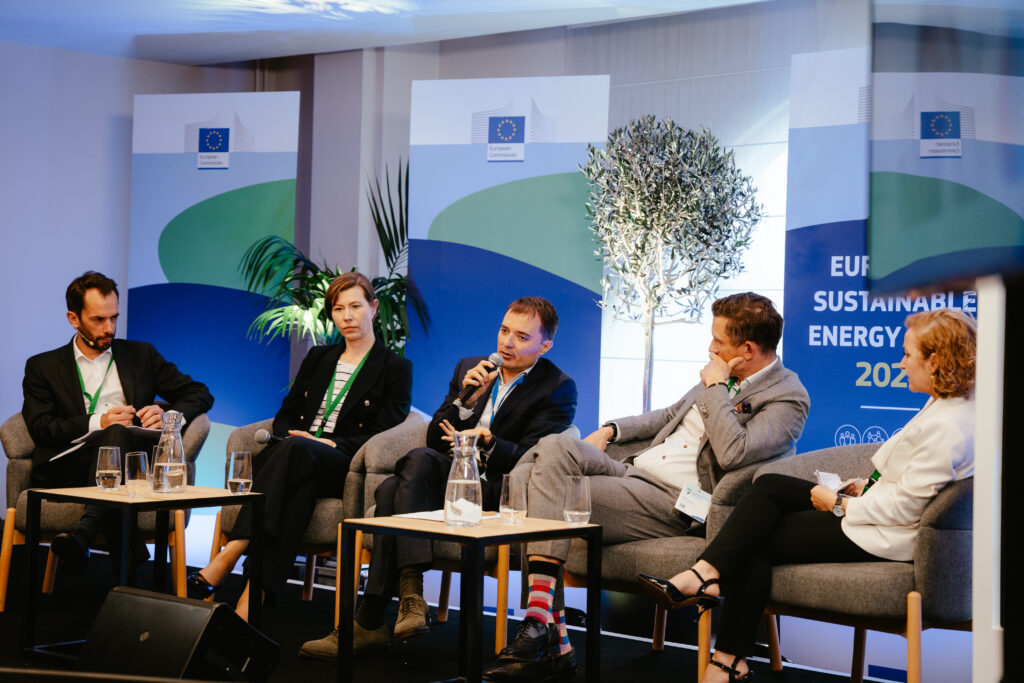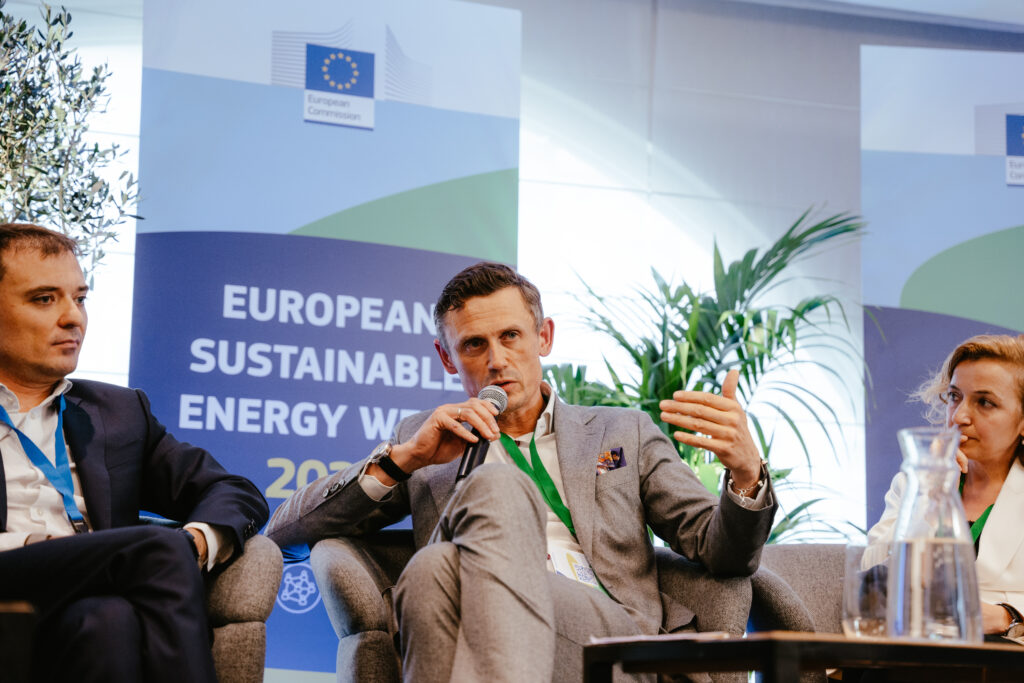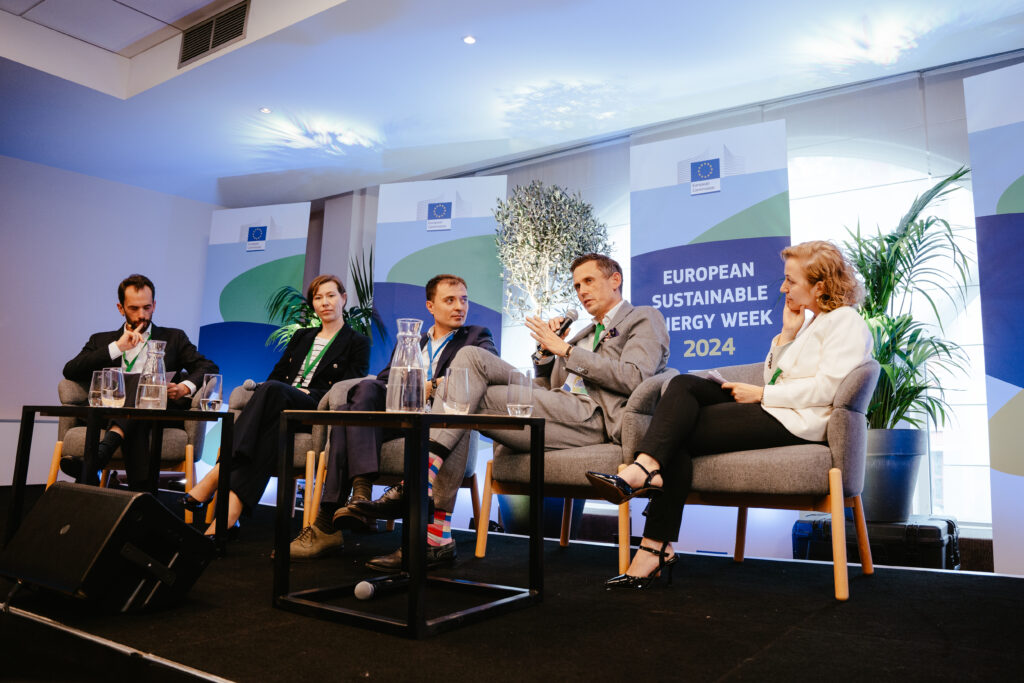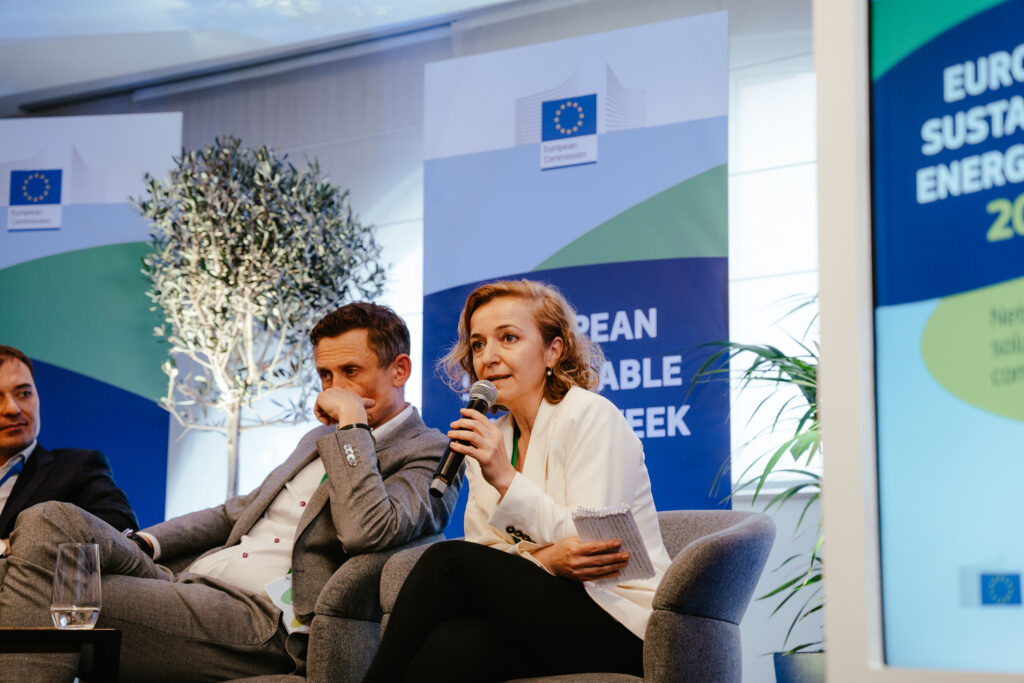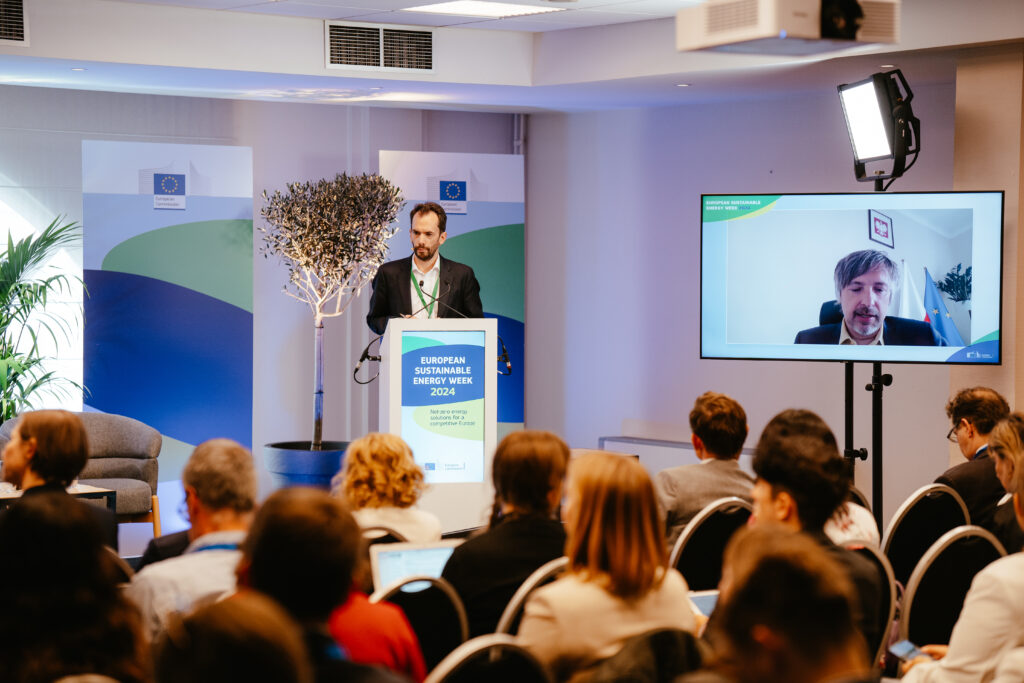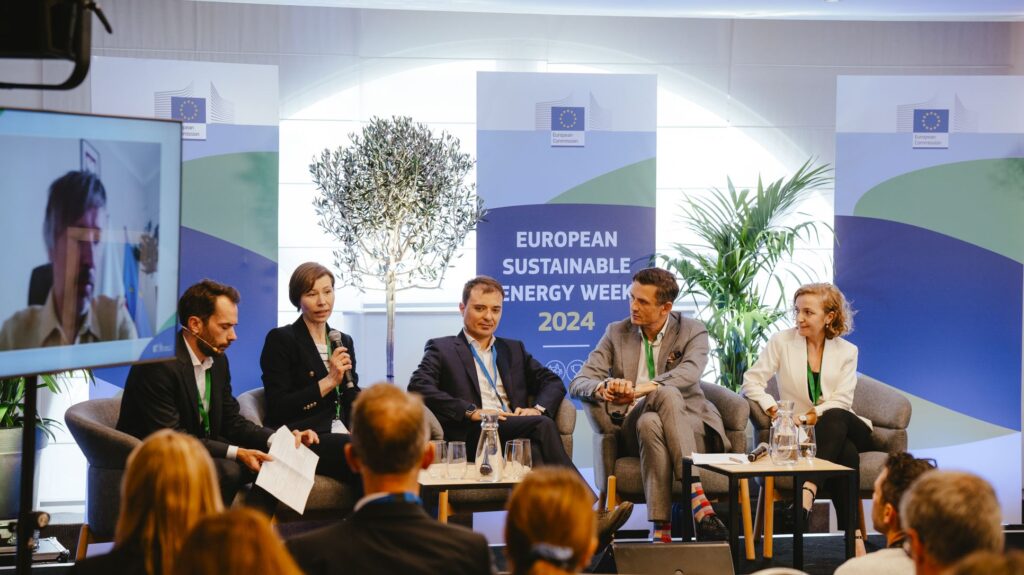Financing climate tech manufacturing in the Central and Eastern Europe region

The 2024 European Sustainable Energy Week draws to a close for another year following a series of lively policy sessions and exchange of views on how to build a resilience and sustainable energy system in the European Union.
EIT InnoEnergy and the European Bank for Reconstruction and Development (EBRD) co-organised a key session focused on “Made in Central and Eastern Europe: financing cleantech manufacturing” to explore how to create the right conditions in the region to attract and de-risk greater investment in cleantech manufacturing projects at scale.
Speakers during the session included Krzysztof Bolesta, Secretary of State at the Polish Ministry of Climate and Environment, Ela Yilmaz, Principal Manager Climate Strategy and Delivery team at EBRD, Marcin Wasilewski, CEO at EIT InnoEnergy CEE, Martina Blahova, CFO at Euro Manganese Inc., Nemanja Mikać, CEO at ElevenEs and moderated by Baptiste Buet, EU Business Unit Director at EIT InnoEnergy.
Key takeaways from panelists
Drawing on valuable insights from investors, cleantech manufacturing pioneers, and public officials from the CEE, key takeaways from the discussion included:
- The battery value chain is fast developing across the region: Ela Yilmaz from EBRD, outlined how the bank has focused recent efforts on the battery sector across CEE which is one of the fastest growing cleantech industries in the region. EBRD has provided significant finance both upstream and downstream for projects including a lithium-ion battery factory and other investments alongside the value chain such as a recycling facility for used batteries in Poland. A recent partnership with InnoEnergy has also strengthened their presence.
- A series A and B financing gap for clean tech manufacturing: Nemanja Mikać, CEO of battery cell producer ElevenES, outlined the main challenge for green industrial startups in the region: convincing growth VCs to invest in high-risk CAPEX-intensive climate tech projects. Marcin Wasilewski from InnoEnergy highlighted the existing strong pre-seed ecosystem in the region, particularly through the work of InnoEnergy CEE. However he concurred that a strong ecosystem from seed to institutional investment, namely series A and B financing rounds from €5M to €100M, is lacking compared to other sectors like digital.
- Room for more innovative financing instruments in the region: Krystof Bolesta, Secretary of State in the Ministry of Climate and Environment, Poland outlined how the CEE region has benefited from access to significant EU structural funds over the past years which has meant many of the financial mechanisms have been designed as grants. In order to access greater finance and attract more private capital to do the heavy lifting in financing cleantech manufacturing, learning to use innovative finance mechanisms will be key for the region. Marcin Wasilewski was also supportive of using alternative financing mechanisms with emphasis put on equity instead of traditional grants.
- The jury is out on the impact of new EU regulations: Martina Blahova, CFO at Euro Manganese welcomed the new strategic projects labelling scheme set out under the EU’s recently finalised Critical Raw Materials Act (CRMA), but the impact of such a label remains to be seen with implementation. Similar labels under the Minerals Security Partnership Forum (which EU and Canada are members of) have been a vote of confidence for Euro Manganese at local level. Blahova sees access to public funding as critical catalysts for projects, particularly when markets are slow.
